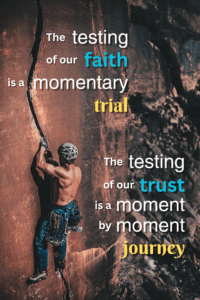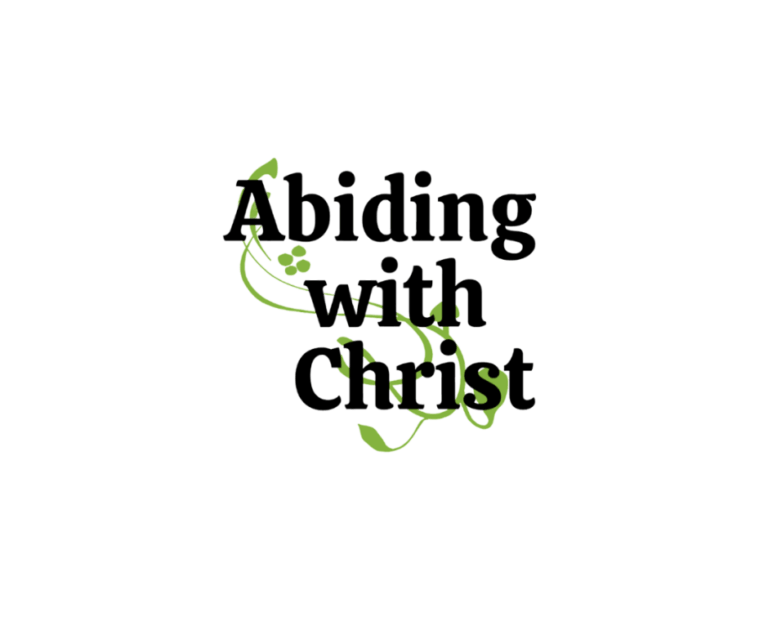When Jesus invites us to come and see, His invitation is undergirded by faith, but it also hints at something else. What else is He asking us?
The following day John was again standing with two of his disciples. As Jesus walked by, John looked at him and declared, “Look! There is the Lamb of God!” When John’s two disciples heard this, they followed Jesus.
Jesus looked around and saw them following. “What do you want?” he asked them.
They replied, “Rabbi” (which means “Teacher”), “where are you staying?”
“Come and see,” he said. It was about four o’clock in the afternoon when they went with him to the place where he was staying, and they remained with him the rest of the day. (John 1:35-39)
Today’s passage is the introduction of how the first disciples came to know Jesus and agreed to follow Him. John, as in other parts of his contribution to the gospels, provides a different perspective than the books of Matthew, Mark or Luke. It is only in this gospel where Jesus is quoted as saying “come and see”.
It’s possible that “come and see” was an idiom of the day, as we see two other people in John use the same phrase. Both the Samaritan woman whom Jesus meets at the well in John 4 and by the mourners over Lazurus’ death in John 11 said to “come and see”.
Whether a common phrase or not, when we read here about Jesus directing the new disciples to “come and see”, it is an opportunity for us to take a lesson about our walk with Christ. Jesus invites us to come and see as well. How the disciples responded gives us some insight into how we should approach our response to this question.
What Did Jesus Mean by Come and See?
To understand better what did Jesus mean by come and see, let’s dig a little more into the passage.
We see that John the Baptist was still active in his ministry at this time, and had disciples of his own. If you find this confusing, understand that disciples are not merely a religious construct. Anyone who chooses to follow or study under a particular teacher can be considered a disciple. However, the term has fallen out of general usage, so that today we really on hear it in a biblical context.
At the beginning of this passage, John shares with the disciples standing with him who Jesus is: “the Lamb of God”. Being John’s disciples, they would have understood quickly that John the Baptist was telling them that Jesus was the person he had been preparing the way for. So the two disciples who heard this started to follow Jesus. Literally, follow Him, not in the sense that we say “follow Jesus” today.
Jesus notices them and asks them what they want, and they respond by calling him Rabbi, and asks where He is staying. Here Jesus answers “come and see”, and the passage tells us they remain with Him the rest of the day.
So we see that the two disciples have a recognition of Jesus. And Jesus, rather than stop and give them a speech, tells them to come along.
That seems pretty straightforward so far. And it is. But there is also a lesson to be learned in it.
Does God Call Us to a Blind Faith?
Almost all of us have heard the term “blind faith” before. We wonder if we are supposed to have blind faith in Jesus. That we are simply to accept that He is who He said He is without any examination or intellectual reasoning.
Thankfully, God intends for our faith in Christ to have a basis in evidence and truth. And we even see that here in this passage. John the Baptist had a clear understanding of exactly where he stood in history. His disciples would have known when John the Baptist declared Jesus the “Lamb of God”, they knew what he meant.
They had already been taught by the teacher they followed to be on the lookout for this person. So, when John the Baptist pointed Jesus out, they followed after Him immediately.
The Bible tells us that faith is both the reality of what we hope for and the evidence of what we cannot see (Hebrews 11:1). But that isn’t “blind faith”. We know the world exists in all its incredible complexity because we see it. The faith we exhibit is that we believe there is a personal Creator behind it. But that is evident to anyone who takes an honest look at the physical evidence while also considering the science of mathematical probability.
What’s More Risky than Blind Faith?
However, let’s take that same science and apply it to the law of gravity and something I will never do – bungee jumping. Let’s say you are standing in line to go bungee jumping for the first time. You are of course, very exhilarated and agitated.
Seeing everyone in front of you jump and survive allows you to have faith that the bungee cord should do the same for you. That faith is not blind.
But there’s a lot you don’t know about. You don’t know how well the harness works, or how trained the employee is to attach your harness correctly. You don’t know if the bungee cord is old or not and might be just one jump away from snapping.
This now is not a matter of blind faith. It is a matter of blind trust. You are trusting the owners and operators of the bungee jumping station with your life. So we see that blind trust is an even riskier proposition than blind faith.
Blind Faith vs. Blind Trust
When Jesus invites us to come and see, He is not inviting us to a journey of blind faith. As we saw, the disciples already had a reason to follow Him, even if they didn’t fully understand the implications yet. But once Jesus said “come and see”, they had to choose whether or not they were going to trust Him.
 Perhaps this wasn’t a difficult choice in the moment. But it was their first choice, in a series of choices that led them to the night Jesus was betrayed, choosing to put their trust in Jesus all along the way, and then to have that trust renewed after Christ’s resurrection, and ultimately to have their lives transformed.
Perhaps this wasn’t a difficult choice in the moment. But it was their first choice, in a series of choices that led them to the night Jesus was betrayed, choosing to put their trust in Jesus all along the way, and then to have that trust renewed after Christ’s resurrection, and ultimately to have their lives transformed.
Does this make sense? Referencing back to Hebrews 11 – go back and read of all those whose faiths are commended. By faith Noah built a boat, but it was his trust in God that was tested with every hammer fall. By faith Abraham offered Isaac, but it was his trust in God that was tested with every step on that 3 day journey.
The testing of our faith is a momentary trial; the testing of our trust is a moment-by-moment journey.
When Jesus invites us to come and see, He is inviting us to trust Him, daily. We can say we believe in Jesus, agree He is the Son of God. But are we willing to let go of our own way, and apply that faith in daily trusting Him? When He says “come and see” with no details, Jesus asks us to trust Him with each step, not even being able to see the next footfall. And if we think that next footfall is off a (bungee jumping) cliff, do we trust His rope won’t break?
In What Way Has Jesus Invited You to Come and See?
Jesus invites us to come and see every time He asks us to lay down our lives to Him. For each of us, this is a lifelong journey of learning to walk with Him day by day. We have to be willing to either put that next foot forward or choose to remain stuck in place.
Is there something that has you stuck in place? Perhaps you haven’t been abiding with Christ as consistently as you should, and therefore aren’t experiencing the fruit of the spirit that will empower you to grow your trust in Jesus Christ.
Jesus invites us to come and see; it’s up to us to take that step towards Him. Jesus loves us, and wants our love to be purely motivated, so He’ll never force our steps. Jesus wants us to come and see what He has in store for us. Will you trust Him enough to find out?
More Bible verses about Jesus’ invitation to come and see:
Psalm 119:10; John 8:12; Galatians 5:25; Ephesians 5:1-2; 1 Peter 2:21; 1 John 2:3-4






